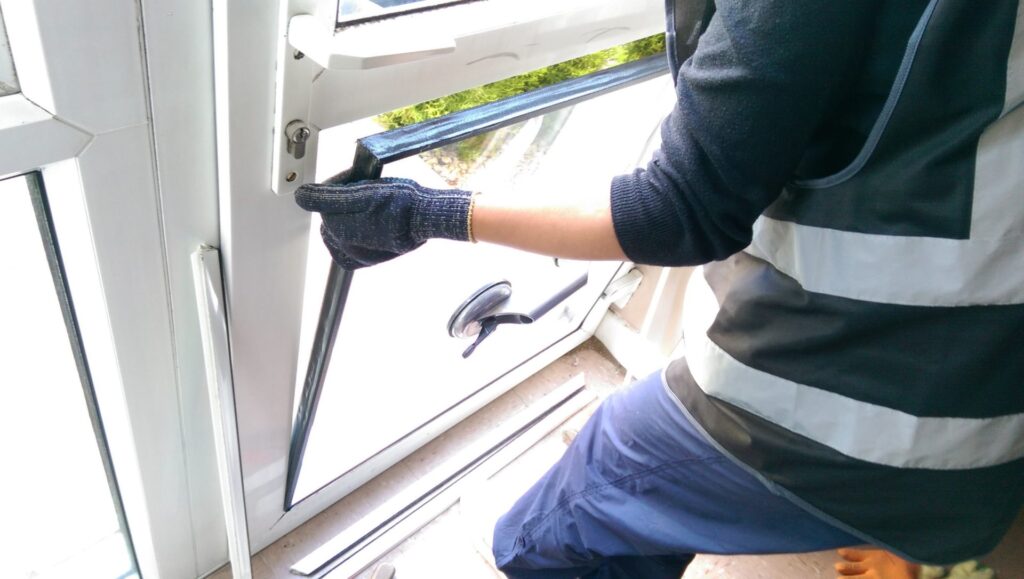
Residential Window Repair: A Comprehensive Guide
Windows are a crucial part of any home, providing light, ventilation, and a view of the outside world. Nevertheless, like any other part of a house, windows can end up being damaged gradually, requiring repairs to preserve their functionality and visual appeals. This post intends to offer property owners with a comprehensive understanding of residential window repair, covering typical problems, repair techniques, and preventive procedures.
Common Window Problems
Before delving into repair methods, it's vital to identify some of the most common window problems that house owners might experience:
- Drafts and Air Leaks: Windows can establish gaps due to weakening seals, enabling cold air to get in and warm air to get away.
- Broken Glass: Impact from particles or weather phenomena can result in cracked or shattered glass panes.
- Decomposing Frames: Wooden window frames can struggle with rot due to extended direct exposure to wetness.
- Misalignment: Windows might become misaligned in time, making them hard to open or close effectively.
- Foggy or Cloudy Glass: This problem often occurs in double-paned windows when the seal fails, causing condensation between the panes.
| Issue | Description | Possible Solution |
|---|---|---|
| Drafts and Air Leaks | Air enters/escapes through gaps | Reseal or caulk windows |
| Broken Glass | Broken or shattered panes | Replace the glass |
| Decaying Frames | Decay due to moisture | Replace or repair the frame |
| Misalignment | Window does not open/close properly | Straighten or replace the window hardware |
| Foggy Glass | Condensation in between panes | Replace the insulated glass system (IGU) |
Repairing Common Window Issues
1. Sealing Drafts and Air Leaks
To resolve drafts, house owners can follow these steps:
- Inspection: Check for spaces around the window frame.
- Sealant Application: Use high-quality caulk to fill gaps and fractures. Ensure the surface is clean and dry before application.
- Weatherstripping: Apply weatherstripping to the movable parts of the window to reduce air leaks.
2. Replacing Broken Glass
Broken glass needs to be replaced as quickly as possible to avoid injury and further damage. Steps consist of:
- Remove the Broken Glass: Use gloves for security. Thoroughly get rid of any broken shards from the frame.
- Procedure and Cut New Glass: Measure the opening properly and have a brand-new pane cut to size.
- Install New Glass: Set the brand-new glass pane into the frame using glazing putty or silicone adhesive for a safe fit.
3. Repairing or Replacing Rotting Frames
Wooden frames with rot can jeopardize the window's structural stability. While small decaying can be repaired, severe decay needs replacement:
- Assess the Damage: Identify how much of the frame requires repair or replacement.
- Usage Epoxy: For small damage, use a wood epoxy to restore the frame.
- Replacement: For substantial damage, remove the rotting frame sections and set up new wood or think about replacing the entire window.
4. Realigning Misaligned Windows
Windows that are misaligned can frequently be adjusted:
- Check the Hinges and Tracks: Inspect for damage or use on the hinges or tracks.
- Adjust the Hardware: Tighten or rearrange screws on hinges or change the window tracks to realign.
- Check the Window: Open and close the window to make sure smooth operation.
5. Repairing Foggy Glass
Foggy windows normally indicate a failed seal in double-pane windows, needing replacement:
- Identify the Issue: Confirm that the fogging is due to a seal failure.
- Replace the IGU: Consult a professional for the replacement of the insulated glass unit.
Preventive Measures for Window Maintenance
Avoidance is always more workable than repair. Homeowners can take a number of proactive steps to lessen window damage:
- Regular Inspections: Conduct seasonal checks for indications of wear or damage.
- Tidy Frames and Glass: Keep frames without dirt, debris, and moisture, which can deteriorate materials.
- Repaint Wooden Frames: Apply a fresh coat of paint or sealant every few years to protect wooden frames from rot.
- Monitor Weatherstripping: Regularly check and change weatherstripping as required to maintain energy performance.
- Address Leaks Promptly: Tackle small leaks and issues immediately to prevent more significant issues down the line.
Often Asked Questions
1. Can I repair my windows myself?
Yes, numerous common window repairs can be performed by property owners with fundamental tools and a little patience. However, complicated repairs, especially those involving glass replacement or structural concerns, ought to be left to experts.
2. When should I replace my windows instead of repairing them?
If windows are constantly breezy, foggy, or structurally harmed, it may be more affordable to replace them. Furthermore, windows that are over 15-20 years old might benefit from an upgrade to more energy-efficient models.
3. How can I improve my window's energy effectiveness?
Consider adding storm windows, applying window film, or installing energy-efficient blinds and tones. Routine maintenance, like resealing and weatherstripping, can also boost energy effectiveness.
4. Exist various types of caulk for window repairs?
Yes, there are numerous types of caulk available, including silicone, latex, and polyurethane. Choose a water resistant, flexible caulk for lasting sealing in exterior applications.

5. How often should I check my windows?
It is advised to inspect your windows at least twice a year, ideally in the spring and fall, to catch any prospective problems before they end up being more severe.
Residential Window Repair - Full Post, is not only necessary for preserving a home's aesthetic and performance however also plays a vital function in energy effectiveness and cost savings. By familiarizing themselves with typical window issues, proper repair methods, and preventive procedures, homeowners can guarantee the durability of their windows. Whether tackling minor repairs or seeking professional assistance, proactive window maintenance is key to a comfortable and effective home environment.


